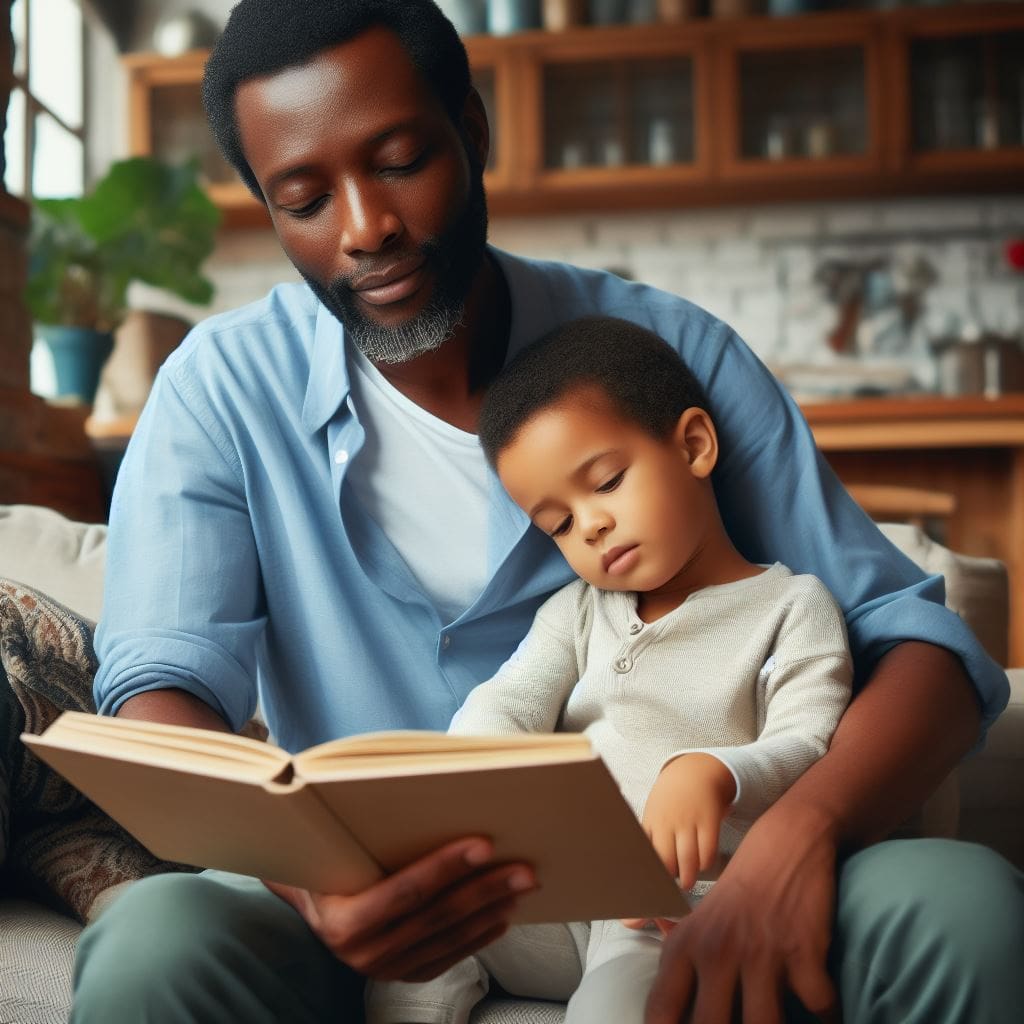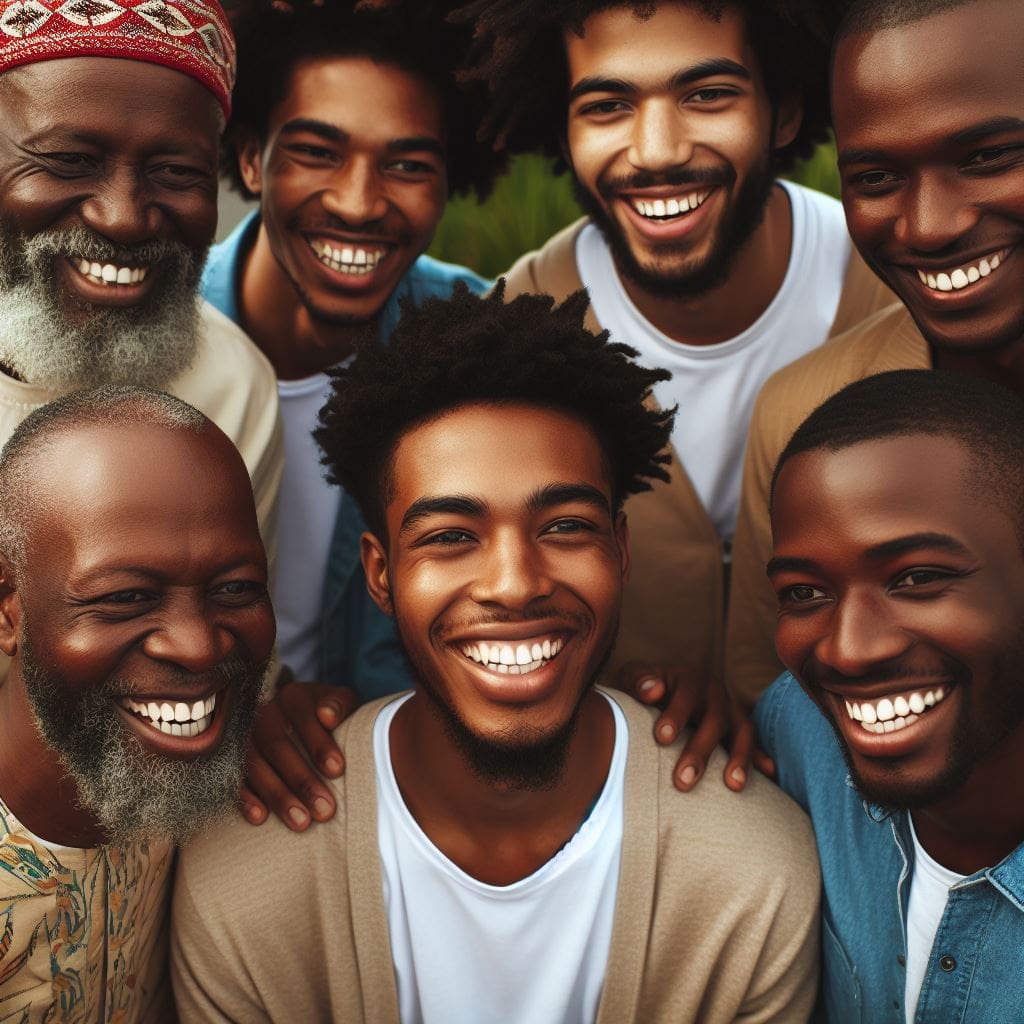
The word “manhood” can bring up many different ideas in our minds such as strength, bravery, being a leader, and taking care of responsibilities.
But what does it really mean to be a man? Is it just about biology or what society expects of us? The answer is not simple, and it’s a journey that keeps changing over time.
This article talks about what it means to be a man, and how different people interpret it. It also discusses the difficulties men face in defining their masculinity, and some of the positive qualities that can help them live a fulfilling life.
A Historical Perspective on Manhood
The concept of manhood has been shaped by cultural norms and expectations throughout history.
- Ancient Civilizations: Back in Ancient Greece and Rome, being a man was all about your physical strength, bravery in wars, and your knowledge and intellectual abilities.
- The Middle Ages: Chivalry was a set of rules that knights followed to guide their behavior. It was all about being honorable, showing good manners, and being brave.
- The Victorian Era: During this period, there were certain social rules that required men to behave in a more composed and less expressive manner. This meant that they had to keep their emotions in check and maintain a reserved demeanor.
- The 20th Century: World wars and social movements challenged traditional notions of manhood. Men began to explore emotional expression and redefine their roles in society. World wars and social movements have made some men rethink what it means to be a man. They started expressing their emotions more and changing the way they contribute to society.
These are just a few examples, and the concept of manhood has continued to evolve in the 21st century.

The Many Layers of Manhood
1. The Biological Aspect: At its core, manhood refers to the biological state of being an adult male. This includes the physical changes that happen during puberty, such as growing facial hair, building muscle mass, and having a deeper voice.
2. The Social Construct: Over time, different societies have had different ideas about what it means to be a “man.” These ideas have changed a lot depending on where and when people lived.
For example, some cultures have thought that men should be tough, strong, and in control, while others have focused more on men being able to take care of their families.
3. The Personal Journey: Being a man is not just about biological and social factors, but also about your personal growth and journey towards self-discovery.
It’s about identifying what’s important to you, building a strong character, and living a fulfilling life that aligns with your values.
Breaking Free from Stereotypes: Redefining Manhood for the Modern World
Sometimes, ideas about what it means to be a “real man” can be harmful and hold people back. Trying to fit into a narrow definition of masculinity can cause feelings of not being good enough, loneliness, and feeling disconnected from who you really are.
Let’s take a closer look at some of these ideas and see how they can affect people.
- The “Tough Guy”: This stereotype portrays men as unemotional, aggressive, and incapable of vulnerability. It discourages men from expressing their feelings and seeking help when necessary.
- The “Breadwinner”: In the past, people used to believe that only men should be responsible for earning money to support their families. This stereotype can lead to immense stress and a lack of work-life balance.
- The “Stoic”: Sometimes people think that men should hide their emotions and not express themselves. This can make it harder for them to connect with others in a deep and healthy way. It’s important to remember that showing emotions is a natural and necessary part of being human.
The Pillars of Positive Manhood
So, what does it mean to be a good man in the modern world? Here are some essential qualities that contribute to a positive and fulfilling sense of manhood:
- Emotional Intelligence:It’s important to know how we feel and be able to communicate those feelings in a healthy way. This helps us build better relationships and take care of ourselves. Men can be both emotionally strong and vulnerable at the same time.
- Responsibility and Accountability: Being responsible for your actions, decisions, and your role in your family and community is a sign of maturity in a man. It means taking ownership of your life and being accountable for the impact you have on those around you.
- Respect and Empathy: Respecting everyone, regardless of their gender, race, or background, is a fundamental aspect of being a positive and good man. Empathy enables men to establish deeper and more meaningful connections with others, leading to stronger relationships.
- Communication Skills: The ability to convey your thoughts and ideas effectively, using both words and actions, is really important in every area of your life.
- Integrity: Being truthful and having a strong sense of what is right and wrong are crucial for earning the trust and admiration of those around us.
- Vulnerability: The ability to express your emotions and thoughts to others is a positive trait that shows your courage and inner strength. It is not a sign of vulnerability or weakness, but rather an indication of your ability to connect with others and build meaningful relationships based on trust and mutual understanding.
- Compassion: Being compassionate, treating others with care, and providing help and encouragement are important traits that are not limited to any particular gender.
Challenges Men Face Today
In today’s world, men face unique challenges as traditional ideas of what it means to be a man are changing. These changes are leading to new expectations, which can be difficult for some men to navigate. Here are some of the main challenges that men encounter:
- The Pressure to Conform: Sometimes, the expectations that society places on men can be very rigid and make them feel like they have to fit into a certain mold that may not be realistic or healthy. These expectations can be outdated and not reflect the diversity of experiences and emotions that men can have. As a result, some men may feel pressure to conform to these expectations even if it doesn’t feel true to who they are.
- The Changing Family Dynamic: The roles of men and women in families are changing. Nowadays, more men are helping with housework and taking care of their families. This can be a good thing, but it can also be difficult.
- Mental Health Awareness: Many men tend to avoid seeking help for their mental health issues because of the negative perception that surrounds asking for help.
Resources and Support for Men
There are numerous resources available to men seeking support and guidance in navigating the complexities of manhood.

- Men’s support groups: These groups offer a secure and welcoming environment for men to connect with others who can relate to their experiences, difficulties, and achievements.
- Mental health professionals: Professional therapists and counselors can offer helpful support and advice to men who may be struggling with emotional problems, communication difficulties, or other challenges in their lives. They can work with you to identify the root causes of your issues, develop strategies for dealing with them, and provide ongoing support and guidance as you work towards a happier, healthier future.
- Online resources: The internet is also a great place for men to find helpful information, get support, and connect with like-minded individuals through websites and online communities.
A Call for Continuous Growth
Growing into a man is not a one-time event; it’s a constant process of learning and understanding oneself. Men can develop a strong identity and build healthy relationships by adopting the positive qualities mentioned earlier. By doing so, they can make a positive impact on the world around them.
Here are some additional points to consider:
- Individuality: There is no single “right” way to be a man. Embrace your unique qualities and values.
- Lifelong Learning: Manhood is a continuous process of growth and development. Be open to learning and adapting throughout your life.
- Positive Influence: Strive to be a positive role model for younger generations, helping them develop a healthy sense of manhood.
Additional Resources for Men:
Here are some relevant online resources that can be explored, categorized by purpose:
General Manhood and Self-Discovery:
- The Mankind Project (https://mankindproject.org/): A global organization focused on men’s emotional and spiritual well-being.
- The Art of Manliness (https://www.artofmanliness.com/): A website offering articles and podcasts on various aspects of masculinity in a modern context.
- The Good Men Project (https://goodmenproject.com/): A website with articles and stories about positive masculinity and healthy relationships.
Mental Health and Support:
- The Jed Foundation (https://jedfoundation.org/): Provides mental health resources and programs specifically for teens and young men.
- Movember Foundation (https://movember.com/): Raises awareness for men’s health issues, including prostate cancer, testicular cancer, and mental health.
- The National Alliance on Mental Illness (NAMI) (https://www.nami.org/): Offers support groups and resources for men struggling with mental health challenges.
Challenging Stereotypes and Redefining Masculinity:
- Promundo (https://www.end-violence.org/members/promundo): A global organization promoting gender equality and positive masculinity.
- MenEngage Alliance (https://menengage.org/): A global alliance working towards gender justice and positive masculinity.
- The Representation Project (https://therepproject.org/): Works to challenge harmful gender stereotypes in media.
Communication and Healthy Relationships:
- Gottman Institute (https://www.gottman.com/): Provides resources for improving communication and building stronger relationships.
- The Gottman Institute Blog (https://www.gottman.com/blog/): Offers articles and tips on communication, conflict resolution, and healthy relationships.
- The National Healthy Marriage Resource Center (http://www.healthymarriageinfo.org/): Provides resources for building and maintaining healthy relationships.
Please note: You can choose a few resources from each category or pick the ones that best suit the specific focus points within your article.



